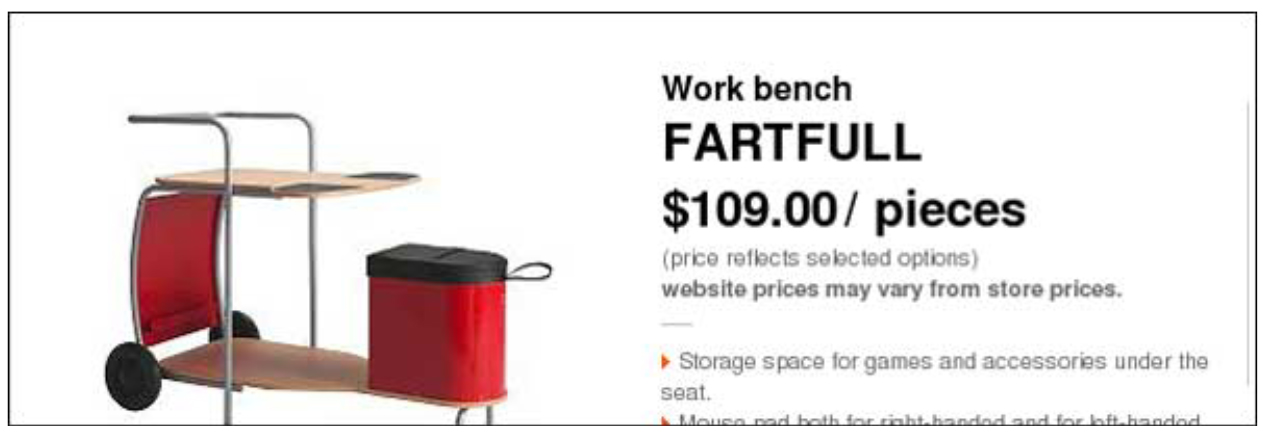
Connecting clients to cultures and countries
HUMOROUS (and Serious) GLOBAL BRANDING BLUNDERS
Astonishingly, some of the world’s largest multinational firms with mountains of experienced branding experts make a common mistake: Before investing millions of marketing dollars abroad, they do not first spend a minor fee with a professional language agency to verify that their company names, product names or slogans work well across major world languages. Let’s look at some amusing failures:
Proctor & Gamble in Japan
When P&G introduced Pampers diapers in Japan, they used US packaging with a stork that delivered a baby. Their sales were dismal because they did not consider the imaging first: Storks deliver babies in Western cultures. In Japan, babies are delivered on giant floating peaches.
Ford in Brazil
Ford first launched its Pinto car in North America in 1970. After great success, Ford wanted to replicate its triumph in Brazil. After sales went nowhere, they discovered that “pinto” is Brazilian slang for “penis.” Sales started galloping when they changed the car name to “Corcel,” which means horse.
Puffs in Germany and Britain
Puff nose tissues failed to gain sales in both European countries. Perhaps that was because “Puff” means “brothel” in Germany and means a “fag” (a homosexual) in the UK.
Schweppes in Italy
When Schweppes translated its “tonic water” into Italian, the label became the slightly less appetizing “toilet water.”
American Motors Corp. in Puerto Rico
AMC launched its Matador car in Puerto Rico, convinced that the name connoted virility and excitement. They failed to realize that “matador” is Spanish for “killer,” not a great name for a car. Since violence is part of daily life in Latin America, the negative impact was magnified.
Pepsodent in Southeast Asia
This (former) American toothpaste manufacturer promoted its US slogan, “You’ll wonder where the yellow went” to Southeast Asia. In that region, people commonly chew betel nut, which turns their teeth black and is a status symbol. The goal of turning teeth white had no appeal and doomed product sales.
Honda in Sweden
Honda introduced the “Fitta” car in Sweden. They later realized that “fitta” is an old-language vulgar word for a woman’s genitals in Swedish, Danish and Norwegian. Instead, Honda changed the name to Jazz.
HSBC around the world
This Hong Kong-based bank tried to take its successful five-year US campaign overseas to entice privatebanking clients. Its slogan was “Assume Nothing.” In many languages, the translation became “Do Nothing.” Where a few hundred dollars of verification would have uncovered this blunder, HSBC had to spend $10 million worldwide and change its tagline to the more successful, “The world’s private bank.”
General Electric - Plessey in France
General Electric Corporation merged with Plessey in 1988 to create a new mammoth telecom company. The combined firm searched for a name that connoted innovation and technology. The winning name, GEC-Plessey Telecommunications, was abbreviated as GPT. In French however, those initials are pronounced very close to “J’ai pété” which means “I have farted.”
IKEA in English
On a similar theme, the Swedish furniture maker introduced a new workbench whose product name translates into English as “Full Speed.” However, the name in Swedish had a slightly different meaning to English speakers:

CONCLUSION
If multi-nationals make these mistakes, small and medium enterprises are even more vulnerable to doing so. Savvy marketers may assume that what works well here will work well there. But why risk assuming?
For a very minimal fee, Auerbach International will verify whether your company name, product names, slogans, taglines and images have any negative meanings in other languages. Please contact us about our special offer to make sure your firm doesn’t become a comical gaffe on one of our future Bloopers lists.
We look forward to serving you!
1609B Chanslor Avenue | Richmond, CA 94801 | USA
1700 Ben Franklin Parkway #2311 | Philadelphia, PA 19103 | USA
translations@auerbach-intl.com | www.auerbach-intl.com
CA tel 415 592 0042 | PA tel 267 865 6890 | Fax 415 592 0043
